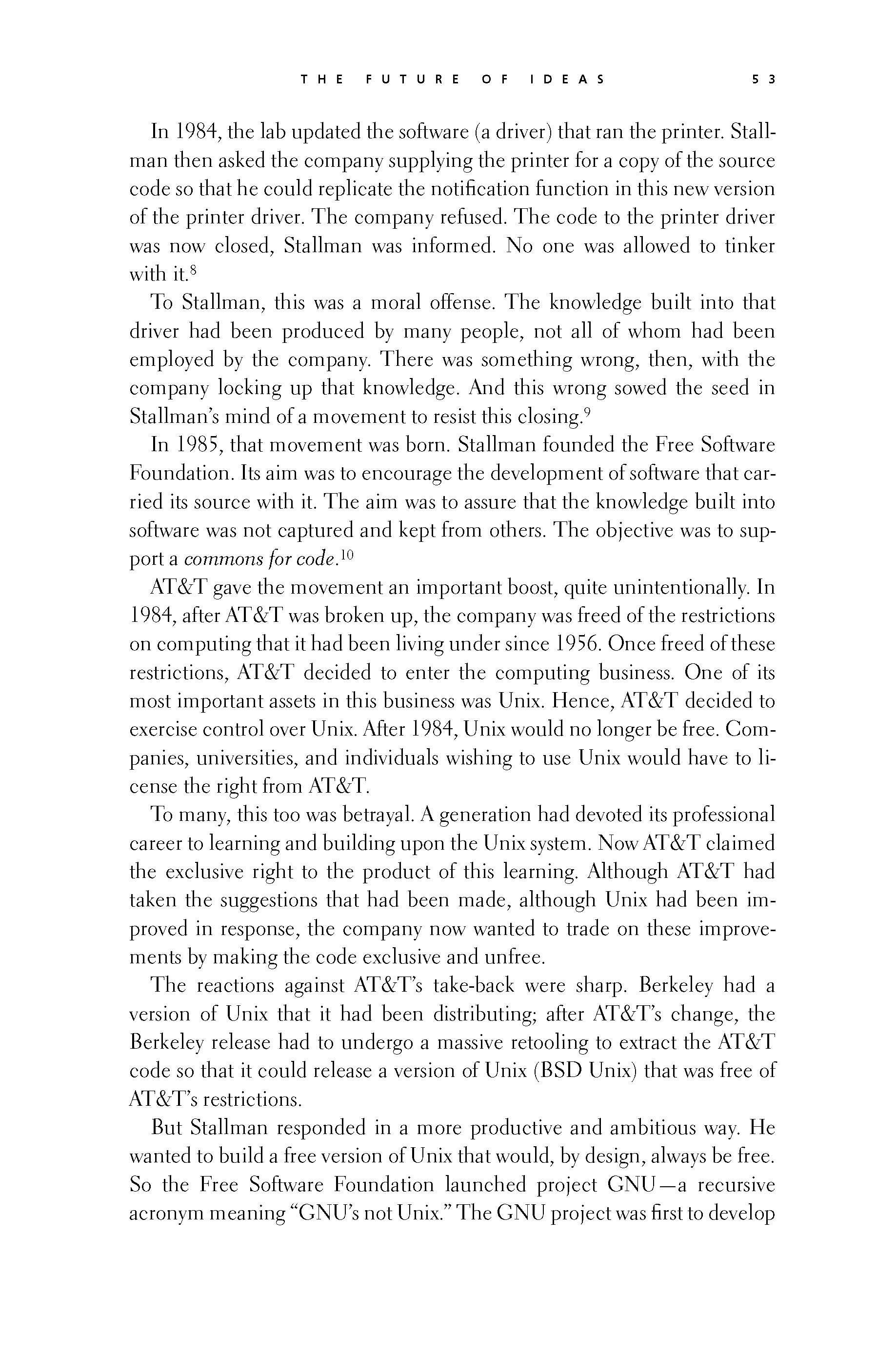 p052 _
-chap- _
toc-1 _
p053w _
toc-2 _
+chap+ _
p054
p052 _
-chap- _
toc-1 _
p053w _
toc-2 _
+chap+ _
p054
In 1984, the lab updated the software (a driver) that ran the printer. Stall-
man then asked the company supplying the printer for a copy of the source
code so that he could replicate the notification function in this new version
of the printer driver. The company refused. The code to the printer driver
was now closed, Stallman was informed. No one was allowed to tinker
with it.[4-8]
To Stallman, this was a moral offense. The knowledge built into that
driver had been produced by many people, not all of whom had been
employed by the company. There was something wrong, then, with the
company locking up that knowledge. And this wrong sowed the seed in
Stallman's mind of a movement to resist this closing.[4-9]
In 1985, that movement was born. Stallman founded the Free Software
Foundation. Its aim was to encourage the development of software that car-
ried its source with it. The aim was to assure that the knowledge built into
software was not captured and kept from others. The objective was to sup-
port a _commons_for_code_.[4-10]
AT&T gave the movement an important boost, quite unintentionally. In
1984, after AT&T was broken up, the company was freed of the restrictions
on computing that it had been living under since 1956. Once freed of these
restrictions, AT&T decided to enter the computing business. One of its
most important assets in this business was Unix. Hence, AT&T decided to
exercise control over Unix. After 1984, Unix would no longer be free. Com-
panies, universities, and individuals wishing to use Unix would have to li-
cense the right from AT&T.
To many, this too was betrayal. A generation had devoted its professional
career to learning and building upon the Unix system. Now AT&T claimed
the exclusive right to the product of this learning. Although AT&T had
taken the suggestions that had been made, although Unix had been im-
proved in response, the company now wanted to trade on these improve-
ments by making the code exclusive and unfree.
The reactions against AT&T's take-back were sharp. Berkeley had a
version of Unix that it had been distributing; after AT&T's change, the
Berkeley release had to undergo a massive retooling to extract the AT&T
code so that it could release a version of Unix (BSD Unix) that was free of
AT&T's restrictions.
But Stallman responded in a more productive and ambitious way. He
wanted to build a free version of Unix that would, by design, always be free.
So the Free Software Foundation launched project GNU -- a recursive
acronym meaning "GNU's not Unix." The GNU project was first to develop
[[53]]
p052 _
-chap- _
toc-1 _
p053w _
toc-2 _
+chap+ _
p054